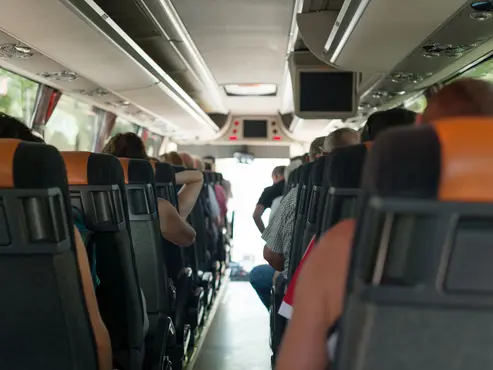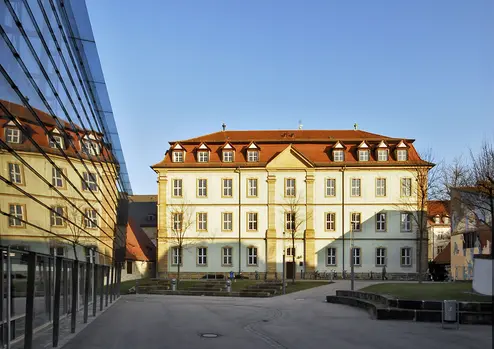Everyday culture in the past and the present
European Ethnology is a cultural science discipline that focuses on the cultural expressions of the general public. The starting point is a broad definition of culture, which is concerned with the production of culture as a specifically human ability to shape the world in which we live, and which is expressed in patterns of action and their production of objects and symbols. Reference points are the multifaceted, everyday spheres of life and experience in the past and present.
The objective is to gain insight into the diversity of European cultures and their phenomena in their historical depth, their social circumstances and their regional manifestations. In a nutshell, European Ethnology is about the reciprocal relationship between culture - history - society - space. So-called micro-studies reveal a dynamic of cultural expressions, the processes of which are to be understood in terms of their duration and their change, their tradition (continuity) and transformation or discontinuity.
- Oral, literary, visual means of transmission
e.g. popular narrative and reading materials, pictures and signs, media and virtual worlds, proverbs, public register books, poetry albums, fairy tales, votives, commercials, online forums - Behavioral patterns, courses of action and imaginary worlds
e.g. everyday, festive and leisure time behavior, ways of working, beliefs, values, tastes, conventions, rituals, customs, events, holidays, celebrations such as weddings or church fairs, pilgrimages and processions, festivals - Group-bound life in traditional structures
e.g. institutions, ways of life and communities, family structures, club life - Material goods
e.g. buildings, housing, clothing, accessories, ceramics, utensils, pictures, house figures, furniture, object biographies, posters, votive images, wayside shrines
- Those who focus on enculturation and acculturation might ask: What shapes values of social groups (family, village, district, professional group)? By mechanisms within the group itself, i.e. by internal socialization or by insistent external influence (e.g. organized folklore), by assimilation?
- What role do power relations play, e.g., between man and woman, landlord and servant, employee and employer? What influence do these have on norms and thus on behavior and lifestyles? Here, the relationships between norm and behavior, domination and culture are addressed.
- Questions about communication and diffusion trace the paths of notions of norms, patterns of values, and rules of behavior. In which way are these transmitted (catechesis, school, media, oral processes, etc.)? Do specific lifestyles spread through them?
- Do these lifestyles, in their spatial limitations, offer patterns of identification that provide security and safety for the individual? How do these spatial limitations change in the course of globalization? How are cultural space and identity linked to each other?
- Within which framework is the individual with his cultural expressions subject to group-specific, social conditions? Which individual creative possibilities are granted to them, i.e. how do group and individual influence each other?
- Is the individual tightly bound to collective ideas of taste, even in his creativity? Do product designers work with these ideas? How do creativity and the culture industry relate to each other (problems of folklorism)?
- Which function and meaning for social, societal systems can be discerned behind cultural objectivations and subjectivations?
- Which signs and symbols condense the meaning of cultural value systems?
We research everyday culture mainly by means of qualitative methods, such as
- analyzing and interpreting historical sources
- applying contemporary empirical methods of European Ethnology,
e.g. qualitative interview, participant observation/field research; - other methodologies of Folklore/European Ethnology/cultural anthropology,
e.g., film analysis, internet ethnography, narrative spatial maps..
All these approaches necessitate an keen interest in people in all their ways and worlds of life. In order for us to reconstruct their everyday culture, a high degree of participation and empathy is called for, as well as an exploratory engagement with both the familiar and the unfamiliar. This reflective debate ultimately leads to an understanding of "foreign", "different" ways of thinking and acting.
Our discipline, European Ethnology, also goes by other names at German universities, e.g.
- Empirical Cultural Studies
- Cultural Analysis
- Cultural Anthropology
- Comparative Cultural Studies
Our professional association DGEKW states: "In the past, our discipline was called “Volkskunde”, which has only been kept as a second name at a handful of universities. Hardly any other discipline takes such a reflective and critical approach to its own history, the epistemological foundations of cultural studies research, its objects and methods and its own self-concept... In a number of programmatic contributions, colleagues have repeatedly addressed the name of our discipline. Numerous institutions (such as university institutes, research facilities, regional associations and societies or museums) have turned away from the term " Volkskunde" in their designations over the past decades. While the plurality of new names... is often a stumbling block, at least for outsiders, it ultimately respects the different individual profiles of institutions and locations."
Source: https://dgekw.de/kv-umbenennung-der-deutschen-gesellschaft-fuer-volkskunde-dgv/
Studies, Practice & Career
Events

- Courses (in German)
- Field Trips (in German)
- Lectures (in German)
- Conferences (in German)
Contact

